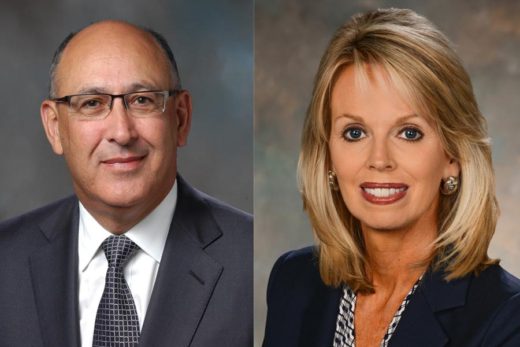Legal Woes Still Possible for Prosper, Despite Origination Change
 Prosper Funding LLC’s recent change to its origination model won’t mitigate the company’s exposure to legal uncertainties or challenges regarding state usury laws, according to a report from Moody’s Investor Services.
Prosper Funding LLC’s recent change to its origination model won’t mitigate the company’s exposure to legal uncertainties or challenges regarding state usury laws, according to a report from Moody’s Investor Services.
For all loans originated after July 31, WebBank — Prosper’s bank partner — will maintain an ongoing economic interest in the loans after they are sold.
“That retained interest takes the form of WebBank receiving an ongoing monthly fee so long as the borrower is making payments on the loan,” Moody’s wrote in the report. “In addition, WebBank’s compensation for the short period between originations and sales to investors will also be adjusted to reflect the average performance of loans originated under its partnership with Prosper over the previous 12 months. Prosper has indicated that more than 50% of WebBank’s compensation from their arrangement will be tied to loan performance.”
Additionally, in the future, rather than buying whole loans from Prosper, loan buyers will have the option to purchase 100% participations in the loans, with WebBank continuing to own the loans, according to Moody’s.
Prosper is in talks to sell about $5 billion worth of loans over the next two years to Fortress Investment Group LLC or an affiliate, Soros Fund Management LLC and Third Point LLC, along with investment bank Jefferies LLC, according to a report from the Wall Street Journal.
The changes to Prosper’s origination model are meant to strengthen the ability to protect against legal actions from consumers who have high interest rate loans facilitated by Prosper’s platform, for the holder of those loans.
However, it may not be enough to completely eliminate the risk of those loans being successfully challenged under state laws, “because courts have not provided definitive guidance on all of the issues, such as widely agreed upon tests to judge the legal appropriateness of different models,” Moody’s wrote.
Prosper is the most recent marketplace lender to alter its origination model in the wake of the Supreme Court’s decision to uphold Madden v. Midland Funding LLC. The company filed an 8-K notifying the SEC of its change on July 1, almost immediately after the court’s June 27 decision. Lending Club, which also uses WebBank to originate loans, altered its model in a similar fashion, in March.
Prosper typically extends three- or five-year personal loans to borrowers with a minimum credit score of 640. Customers then have an option to indicate the purpose for taking out the loan — including car financing.
For more auto finance insights like this, register for the upcoming Auto Finance Summit, Oct. 5-7 at Bellagio Las Vegas. Visit www.AutoFinanceSummit.com for more information.










